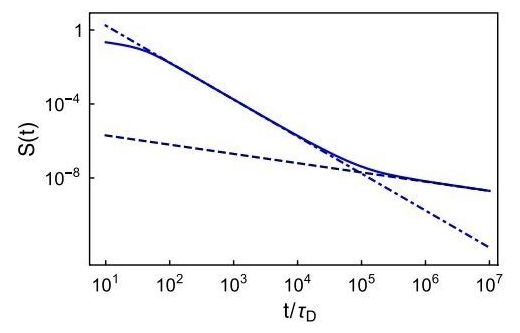(Phys.org)—Ever since the early days of quantum mechanics, the decay dynamics of unstable quantum systems has been thought to follow an exponential decay law, just like the one used to describe radioactive decay and many other natural processes. The exponential law in the quantum domain was originally proposed by George Gamow and later developed by Eugene Wigner and Victor Weisskopf. According to this law, when given a sample of unstable atoms, the number of those that are likely to decay during a brief period of time is proportional to the number of atoms present.
In the years since then, however, physicists have found that deviations from the exponential law can occur in unstable quantum systems, but only in those that are isolated from the external environment. This is because isolated systems are free from environmental decoherence, which makes it possible for the quantum decay products to reconstruct themselves back into their initial, pre-decayed states. Consequently, the decay is initially slower than that predicted by the exponential law, and in the later stages, the decay often exhibits a power-law behavior. Researchers have previously shown that this nonexponential decay can be harnessed for quantum control.
Now in a new study, physicists have theoretically shown that quantum decay processes can deviate from the exponential decay law not only when the system is isolated, but even when it is in contact with the external environment. The results suggest that an unstable quantum system can decay and subsequently return to its original state, even in the presence of environmental decoherence.
